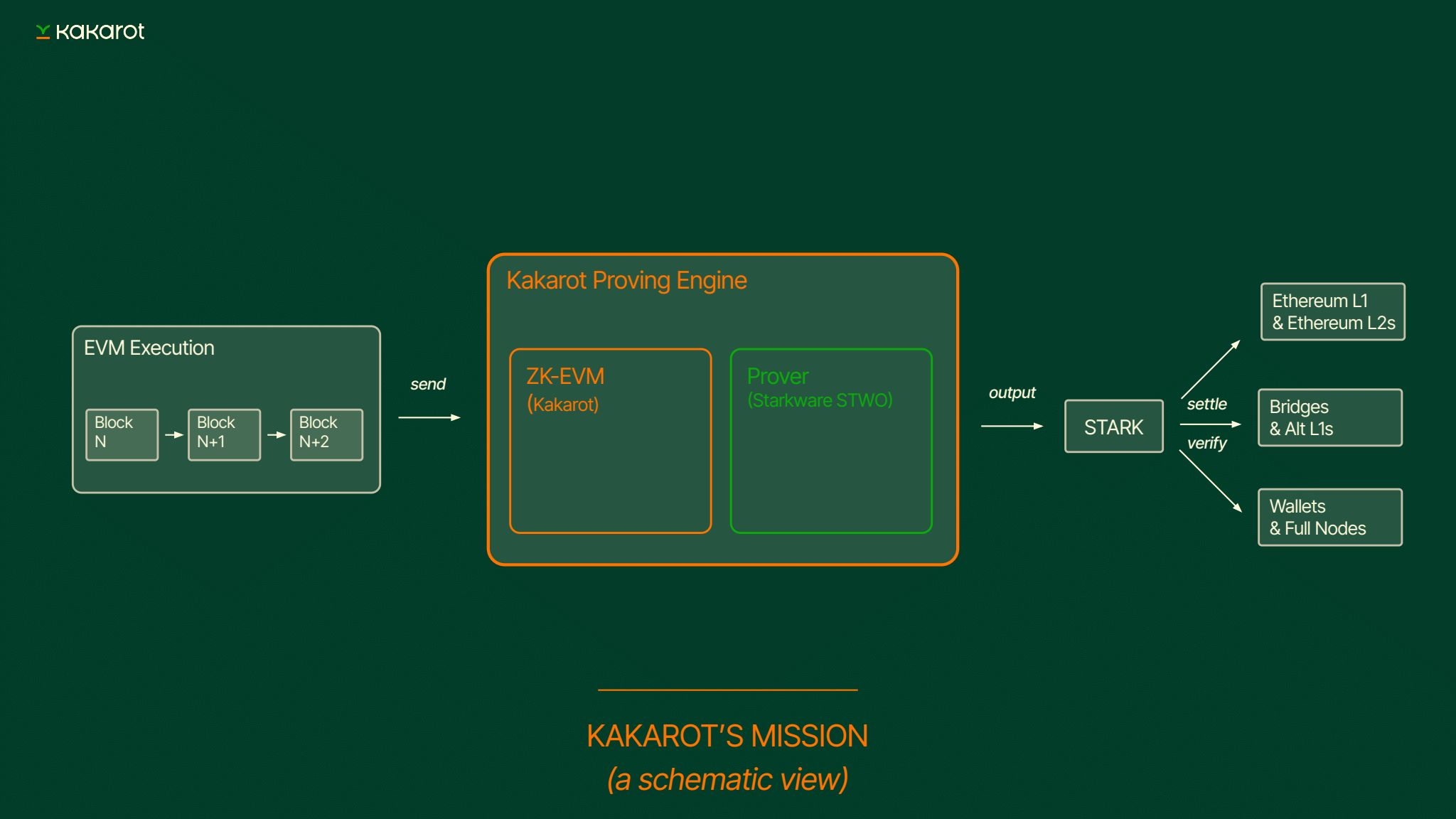Transition any EVM chain to ZK
Kakarot can prove blocks of Ethereum-equivalent chains, enabling any EVM chain to transition to ZK for scalability and security. We call this service Keth, a chain-agnostic EVM proving service with real-time proof generation. We believe this brings strong value to the broader Ethereum ecosystem: help optimistic rollups transition to ZK, reinforce the proof system of existing ZK-rollups, power ZK bridges and ZK infrastructure (ZK full nodes), and speed-up the adoption of ZK at the L1 level.

Keth will become a proving powerhouse, in its ability to “STARKify” every EVM-equivalent network in the space. The first use case of Keth is to help transition every Optimistic rollup into a ZK-rollup. Secondly, Keth will allow currently expensive EVM ZK-rollups to adopt a cheaper and more performant prover stack.
Lastly, Keth will also accelerate the transition of all rollups to Stage 2 as they adopt multi-proofs in their architecture, with Keth as one of the options. Every single EVM ZK-rollup will then be able to prove its integrity using multiple proof systems simultaneously without having to pay extremely high proving fees (e.g., using proofs from Risc-Zero, Succinct, and Kakarot). These multiple proof systems will work in a complementary way: all proofs will have to agree on the state of network, ensuring no single point of failure.
For example, Taiko, an existing EVM ZK-rollup can adopt multi-proof approach with its prover adaptor, Raiko using proof systems from Keth, Risc-Zero Zeth and Succinct’s RSP.
We believe that Keth is contributing towards a “ZK-everything” future where all bridges, wallets, or full nodes in the rollup ecosystem are powered by ZK. This movement will significantly reduce the cost of every major rollup infrastructure while increasing users’ sovereignty. Indeed, with ZK, users gain the ability to verify proofs locally, reducing the reliance on trusted infrastructure providers.
When it comes to performance, early benchmarks have shown that Starkware STWO, the prover technology used by Keth, could achieve tens of MHz in prover speed. Keth is believed to bring improved performance, orders of magnitude more efficient than existing solutions.
Keth is scheduled to go live in production by end-of-year 2025.